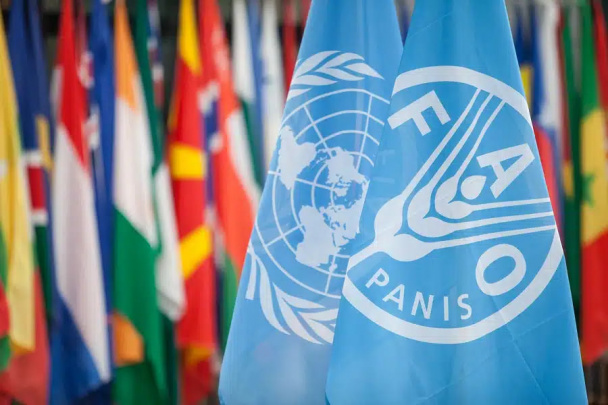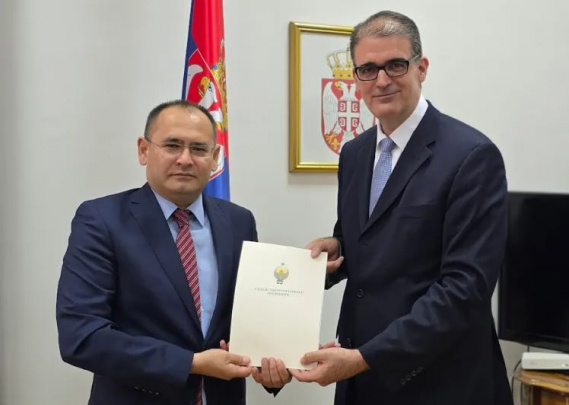Foreign policy debate: Senate deputy contradicts MFA's classification claim
Deputy Chairman of the Senate, Sodiq Safoyev, addressed concerns regarding the openness of the country’s foreign policy concept during the Civil Society Week forum in Tashkent. Speaking to Kun.uz, Safoyev asserted that the current foreign policy document is accessible to the public, contradicting statements from the Ministry of Foreign Affairs (MFA) that the document is classified.
“Where did you get the idea that it’s closed? The doctrine cannot be closed. The concept has been publicly discussed, reviewed by parliament, and approved. It’s available in open sources,” Safoyev remarked, emphasizing its transparency.
However, the MFA's spokesperson, Akhror Burkhanov, provided a contrasting perspective, confirming that the foreign policy concept, adopted in 2012 and amended in 2018, is officially classified. The spokesperson added that a revised version, scheduled for adoption in 2025, may also remain partially or entirely classified.
Challenges of openness in foreign policy
The debate highlights discrepancies between official statements and public expectations. While Safoyev insists that the document is open, it is not available on Lex.uz, Uzbekistan's legal information portal. Only the outdated 2012 version is accessible, which lost its validity in the same year.
The closed nature of the current concept raises questions about transparency in shaping Uzbekistan’s foreign policy. As global dynamics evolve rapidly, Safoyev emphasized the need for Uzbekistan’s policies to adapt. “Specialists and the Council on Foreign Policy are actively working on the new concept to address contemporary challenges,” he stated.
Transport and logistics as strategic priorities
In the interview, Safoyev also highlighted Uzbekistan’s growing focus on developing alternative transport corridors. With 50% of trade and export costs tied to transportation, enhancing logistics infrastructure is critical.
The construction of the China-Kyrgyzstan-Uzbekistan railway marks a significant step, resolving long-standing obstacles and paving the way for better connectivity. Safoyev also emphasized efforts to establish the Central Asia–South Caucasus–Europe corridor, citing recent partnership agreements with Kazakhstan and Azerbaijan as evidence of regional cooperation.
The development of southern and eastern routes, including the Trans-Afghan corridor, could dramatically reduce delivery times from 20-22 days to just 2-3 days, easing logistical burdens and improving economic prospects.
Foreign policy evolution
Safoyev assured that the new foreign policy concept will reflect Uzbekistan’s commitment to expanding its global partnerships. “For Uzbekistan, northern, southern, and all directions are crucial. Transport corridors and regional connectivity will undoubtedly be a key focus,” he concluded.
Recommended
List of streets and intersections being repaired in Tashkent published
SOCIETY | 19:12 / 16.05.2024
Uzbekistan's flag flies high on Oceania's tallest volcano
SOCIETY | 17:54 / 15.05.2024
New tariffs to be introduced in Tashkent public transport
SOCIETY | 14:55 / 05.05.2023
Onix and Tracker cars withdrawn from sale
BUSINESS | 10:20 / 05.05.2023
Latest news
-
One in three Uzbeks has no savings – Central Bank survey
SOCIETY | 13:25
-
Honored composer Sultonali Rahmatov dies at 55
SOCIETY | 12:47
-
Private universities found exploiting loopholes for part-time admissions
SOCIETY | 12:44
-
Navoiyuran and NMMC employees convicted for attempting to illegally sell uranium
SOCIETY | 20:54 / 28.07.2025
Related News

12:34 / 25.07.2025
Uzbekistan advises citizens in Thailand to avoid Cambodia border areas

20:09 / 10.07.2025
Uzbekistan’s new ambassador presents credentials to President Erdoğan

16:10 / 09.07.2025
Uzbekistan joins FAO Council for 2028–2029, gains voice in global food security

11:27 / 08.07.2025



